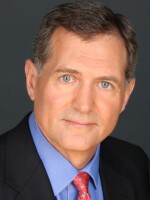AILSA CHANG, HOST:
Now, U.S. involvement in the war in Yemen began about three years ago. And we're going to take a look now at what might happen if the U.S. were to scale back or even to pull out of the conflict, as some members in Congress are demanding. NPR national security correspondent Greg Myre is here with us in the studio to talk about all this. Hey, Greg.
GREG MYRE, BYLINE: Hey, Ailsa.
CHANG: So first, can you just bring us up to speed here? What is the U.S. doing now in Yemen?
MYRE: Right. So the U.S. really followed the Saudis into this war. When the Saudis begin bombing the Houthi rebels about three years ago, the U.S. assisted their ally. They provide the weapons to the Saudi planes - intelligence training. And until very recently, they were providing in-air refueling to these Saudi planes.
CHANG: Right.
MYRE: Now, that's been stopped following the Khashoggi killing. Now, there's a second troll that actually goes back even further. And that's the U.S. going after al-Qaida initially - and more recently some Islamic State militants - who were out in the hinterlands of Yemen. That's involved U.S. drone strikes or occasionally Special Forces raids on the ground. But now the war is essentially a stalemate, and this humanitarian crisis just keeps getting worse and worse - estimates of about 13 million, or roughly half the population, at risk of famine.
CHANG: So how unusual would it be for Congress to pass a resolution directing the president to just stop most U.S. involvement in Yemen?
MYRE: It will be highly unusual. Ever since the Al-Qaida attacks in 2001, U.S. presidents have used this sort of broad mandate to act pretty much where they want - whether it has been in Afghanistan, Pakistan, Syria or Yemen. So for - and there has been this constant talk about why isn't Congress reasserting itself and voting or...
CHANG: Reasserting its war powers.
MYRE: Exactly, exactly. So this would be a step in that direction. And as Tim Mak just mentioned previously, we're seeing a lot of - not only Democrats but some Republicans being very angry about this and really demanding a voice in a way they haven't.
CHANG: So what would happen if the U.S. did pull back? I mean, can you just paint a picture for us?
MYRE: Yeah, I mean, I think it's highly unpredictable. I think the optimistic scenario would be that the fighting does subside. The ports, which have been blockaded, would open up. More aid would get through - that civilians would get some relief.
But there's plenty of skeptics. And those voices were voiced by Defense Secretary Mattis and Pompeo today. They say that the Houthis and their ally Iran would just consolidate their power, become stronger and more entrenched, that ISIS and al-Qaida would be able to operate more freely. And the Saudis would probably really stage a fit about this. They wouldn't accept the sort of Houthi government - or a hostile government on its southern border. And the U.S. argues that it is in fact restraining the Saudis in some way - so the argument being that things could get worse.
CHANG: So what are we likely to see next in terms of the war in Yemen - and maybe even prospects for peace?
MYRE: Prospects for peace may be a bit down the road. But we are hearing a lot of talk about a possible cease-fire in the past few weeks. Now, this is going on mostly at the U.N. The U.S. initially was supporting that, but they've sort of pulled back. And there are now signs that the U.S. seems to be more in line with the Saudis, who are very much opposed to a real full cease-fire at this point.
There's also talk there could be possible peace talks in Stockholm, Sweden, maybe as soon as early next month. But it's still hard to see that as a real solution. The Houthi rebels have the capital and key territory. The Saudis have the ability to block ports, prevent aid. So - and as we've mentioned, the civilian conditions are very dire. So this could be the first step, but there's a long way to go.
CHANG: All right. That's NPR's Greg Myre. Thank you, Greg.
MYRE: My pleasure. Transcript provided by NPR, Copyright NPR.






